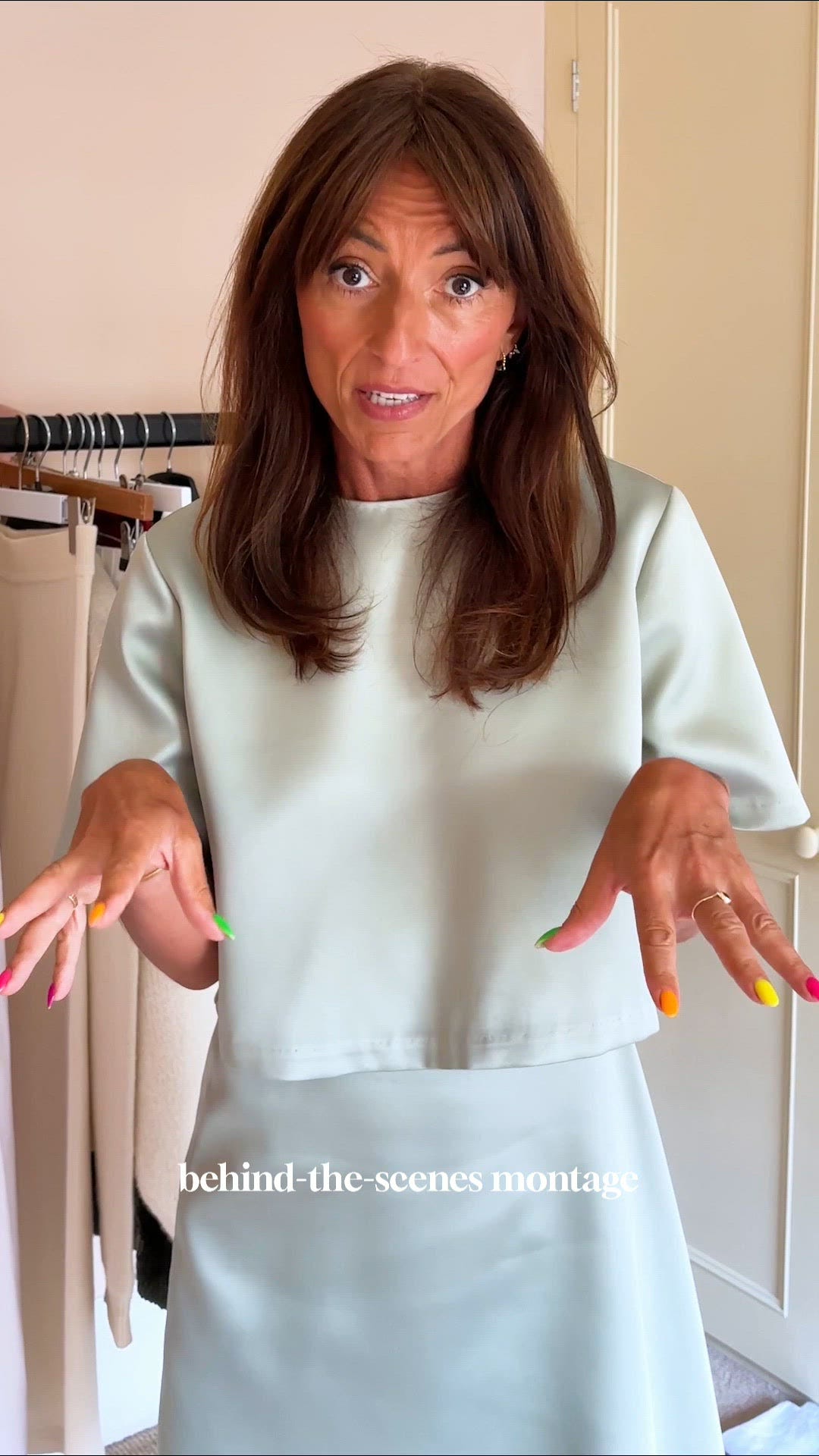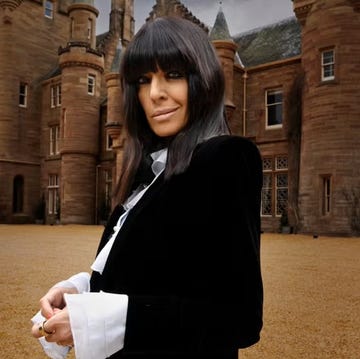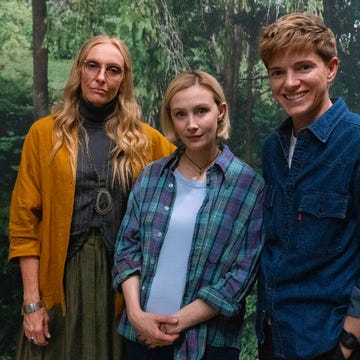The birth of your first grandchild is a moment many women dream about. ‘And, mostly, we hear it described in universally glowing terms,’ says Dr Terri Apter, psychologist and author of new book Grandparenting: On Love And Relationships Across Generations. ‘We hear about the immediate, unconditional love that they have for their grandchild and how the new baby brings women closer to their adult daughters. And that’s wonderful. But there are also many layers to this new role and relationship that aren’t talked about.’
Dr Apter’s book offers a refreshing, warm and wise exploration of these little-discussed complexities. Because, as she explains, when a child becomes a parent themselves, existing family structures are radically altered. Old tensions between parents and their adult children may come into sharp relief, or new ones emerge.
Dr Apter herself is a grandmother, but her exploration of modern grandparenthood also took in cutting-edge research and case studies from around the world. So what can we learn?
What to read next
The caring paradox
Becoming a parent can cast new light on the way you yourself were parented. Often, that’s a positive thing: ‘Women report a new level of understanding and appreciation of their own mother,’ says Dr Apter. ‘There’s also a new kind of equality – we’re both parents now and, in that respect, we have equal status.’
Occasionally, however, it can also present challenges. ‘Being a new mother and caring for your baby can bring up, whether consciously or not, a lot of memories of what it was like being cared for by your mother,’ explains Dr Apter. Where those memories are not uniformly positive: ‘Suddenly a mother can hear criticism that she never heard before and that blows her away. Suddenly, what I say isn’t right, and I’m reminded of all my faults and failings.’
Perhaps ironically, this contrast can be thrown into even starker relief when grandparents pitch in and become very involved in their grandchild’s care. ‘Sometimes, a new mother will say to a grandmother: “You were never this patient with me. You never had this much time for me,”’ explains Dr Apter. This can be painful and confusing to a new grandmother: ‘She can find herself flummoxed: why are the things that I’m doing well becoming a focus of criticism?’
What to do? Dr Apter suggests that new grandmothers can draw on what they learnt from their years of parenting a teenager: ‘It’s an emotionally tumultuous time. There’s going to be quarrels, there’s going to be irritation, there’s going to be criticism, but you’re going to come back together. So if you can, just be patient and accept that new motherhood is a stressful time and it’s going to get easier for everyone.’
When helping goes wrong
New motherhood is a maelstrom of emotion, suggests Dr Apter: ‘You’re relieved and you’re in love, but you’re also tired, stressed and anxious. You’re constantly asking yourself: am I doing this right?’
Into this context steps the grandmother, keen to help and speaking from experience. She can see that the baby is tired and needs to be put down. Or that they’re hungry and needs to be fed or is overstimulated and needs the lights turned down… This advice is intended to help but: ‘It can feel like criticism,’ says Dr Apter. ‘The mother knows that they’re on a very steep learning curve – that they haven’t got there yet.’ Every bit of advice can feel like it’s underlining that lack of knowledge and her inability to sooth her baby.
Then there’s the problem of changing guidance: ‘The grandmother may be speaking from advice that’s out of date,’ says Dr Apter. ‘When I was a new mother, I was told to put babies on their stomachs when they sleep; now it’s on their backs. So you have to be flexible and realise that your old-age wisdom is sometimes just old.’
The love triangle
‘It’s well understood that a new mother’s body is awash with oxytocin – the cuddle or love hormone,’ says Dr Apter. ‘What’s less well known is that grandparents engaging with the new baby can also become awash with this love potion.’ This rush of love is sometimes described ‘the grandma swoon’, she explains: ‘You’re falling in love – you feel this very close connection with the baby. As a result, a grandmother can almost feel like the baby belongs to her.’
Meanwhile, an intense and complex dynamic is developing between mother and baby: ‘We talk about new mothers developing baby brain, as if it’s a form of forgetfulness or brain fog,’ says Dr Apter. ‘But it isn’t a matter of getting less smart. It’s actually a matter of getting smarter, because what you’re doing is focusing intensely on what matters now – how the baby is communicating its needs and how it’s responding to what you do. These interactions between mother and young baby have been described as a dance.’
All this means that grandmothers wanting to get as close as possible to the baby can feel shut out. ‘The parent is the one in charge,’ summarises Dr Apter. ‘The parent is also the one who controls access to the grandchild, and that can be very disturbing to the grandparent and make them hypersensitive to criticism or conflict. They might worry: am I going to be shut out?’
The solution? ‘Watch, wait and ask your ask your daughter: “What can I do that’s most useful? I want to be engaged, but I feel I’m sometimes a distraction. So what can I do that will help you the most?”’
Dr Apter’s research suggests that mother-in-laws can often feel particularly sidelined during this period: ‘And they also say their son is oblivious, so their conversation has to start with their son, but it should take the same form: what can we do to help?’
Remember, everyone’s on a learning curve: baby, parents and grandparents.
Dr Terri Apter’s new book, Grandparenting: On Love And Relationships Across Generations, is published by September Publishing and is out now.













